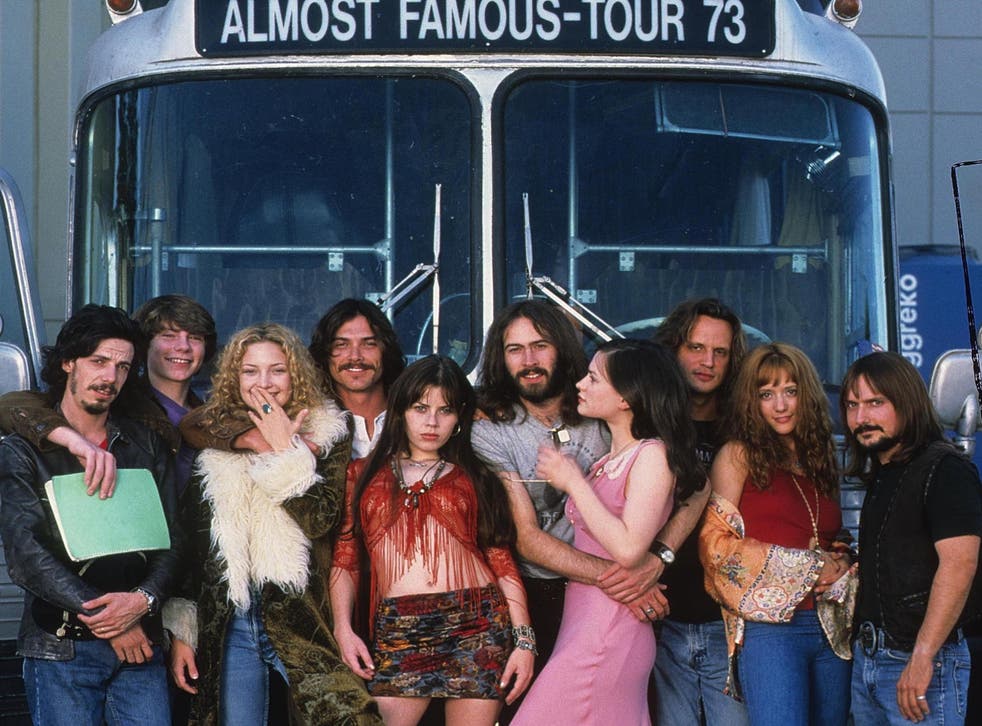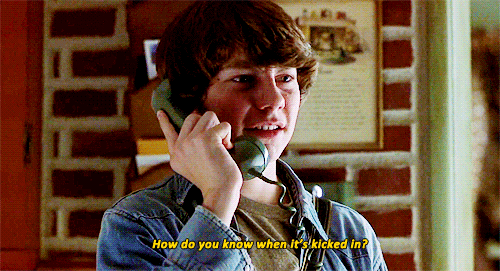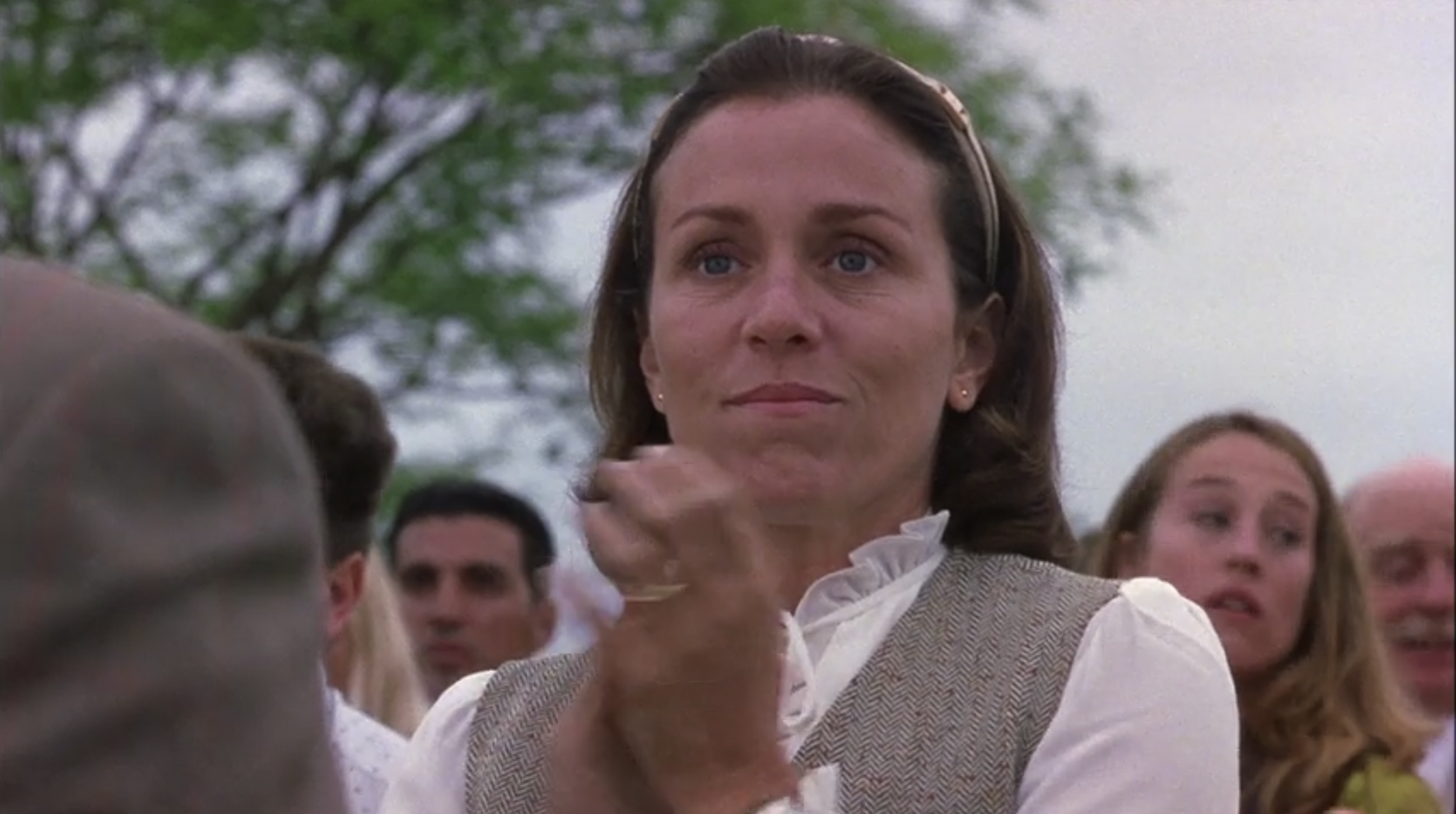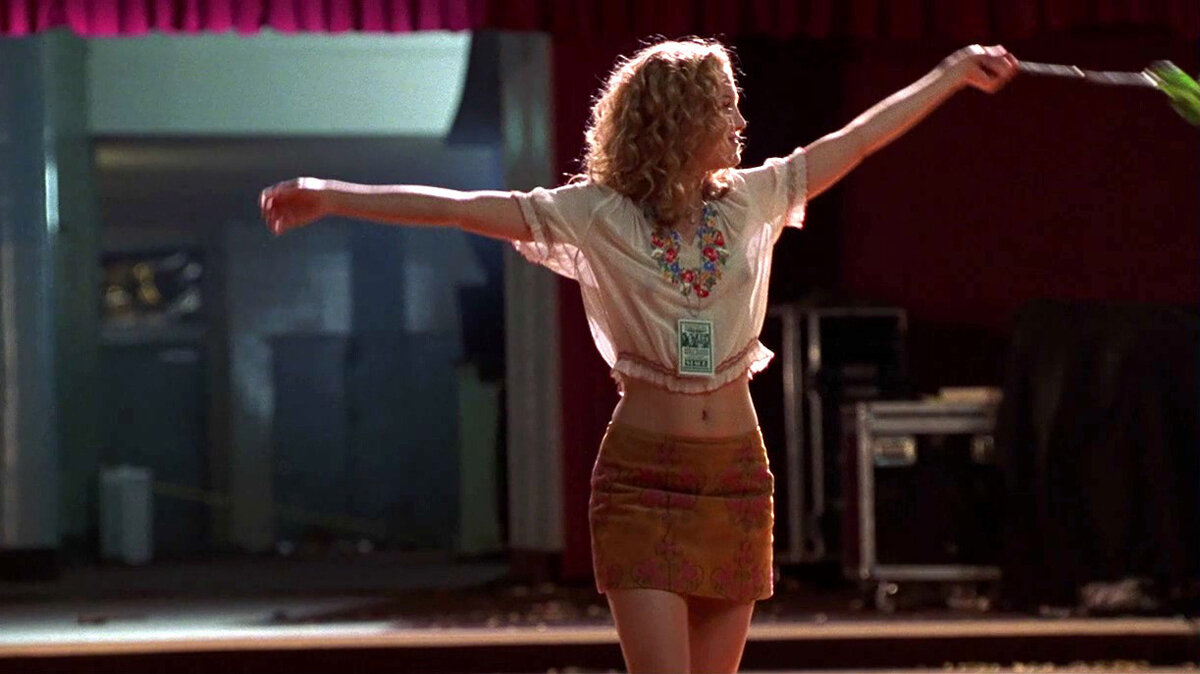In preparation for the next Smackdown Team Experience is traveling back to 2000.
 This photo is an instant serotonin hit.
This photo is an instant serotonin hit.
By: Christopher James
Almost Famous is a love story. That’s not as a reference to teenage journalist wunderkind William (Patrick Fugit) and his love for legendary “band-aide” Penny Lane (Kate Hudson). It’s also not a reference to William’s adoration for the band Stillwater, which sets off the chain of events. Writer-director Cameron Crowe made Almost Famous as a love letter to professional passion. William loves music and just wants outlets to profess his feelings on the subject. Can a journalist be a fan? This is a question asked multiple times throughout the movie. In the end, the answer is yes and no. You have to love something enough to devote your life to it, but not so much that you get swallowed up by it...
Though I myself am not a huge music fan, Almost Famous instantly became one of my all time favorite films when I watched it in high school. William’s love for music reminded me of my love for movies. As I’ve grown older and revisited the film many times, I’ve seen how it’s simultaneously fawning over the music industry and acting as a cautionary tale. Loving music brings color to William’s life, but it also gives him an unrealistic image that the business, and the band Stillwater specifically, can never live up to. Penny Lane also falls victim to William’s rose colored view of things. She’s regarded as a Goddess by so many that no one looks hard enough to see the self-conscious girl behind all the confidence.
So how to write an ode to one of my all-time favorite movies? Is it possible to be objective? Much to the chagrin of Alison (Erin Foley), the Rolling Stone fact checker, I have to write as a fan. Here are the ten moments, in no particular order, that made me fall in love with the film all over again (though there are many more):

The Undersung Zooey Deschanel
Is Zooey Deschanel the best performance in Almost Famous? No. However, so many actors get tons of notice when this film is talked about (two of which will be featured on the Supporting Actress Smackdown this week). However, Deschanel’s Anita is a character that I can never shake off each time I watch. Her rebellious child act feels familiar, yet you can always see how Anita and her Mom, Elaine (Frances McDormand) are cut from the same cloth. Their arguments, care for William and inability to compromise are what bind them, rather than tear them apart. While Anita lets out an excited yell upon leaving, her exuberance quickly fades, almost as if she knows she’s leaving childhood behind. When Anita reappears at the end of the film, it feels like a warm hug. Despite being gone for years, her presence feels like home. While her reunion with William is touching, her first moments with Elaine are truly dynamite. With the benefit of time, they’re able to laugh, cry and lightly roast each other. Living life as an adult has given each of them a new level of respect for each other.
The “Band Aides”
God bless the Band Aides. Polexia, Estrella, and Sapphire represent a real who’s who of late 90s teen stars. They’re played by Oscar winner Anna Paquin, Bijou Phillips, and Fairuza Balk, respectively. While Penny Lane is the grand dame of the Band Aides, the rest of the crew adds texture to the world of the tour. In so many ways, Penny is the Peter Pan to these Lost Girls, who want to be treated like grown ups, but don't actually want to grow up. Of the three of them, Fairuza Balk's Sapphire stands out. She get an incredible entrance ("Does Anybody Remember Laughter?") and nails some key physical comedy beats (her running into the wall as she chases the bus will never not be funny). Not only that, more than anyone she represents the moral compass for the people on the road. She's the one to take Russell to task for how he mistreated Penny and William. Even earlier in the film, she's the one person that Elaine feels she can relate to on the phone. Penny Lane may be the leader of the Band Aides, but Sapphire is arguably the most mature "mother hen" of the group, always looking out for everyone.
Billy Crudup: The “Golden God”
Russell is so easy to romanticize. When Russell stands atop the roof of a house party in Topeka, about to jump into the pool, he declares “I Am A Golden God” with his arms outstretched and a crowd of teens cheering. In many ways, William, Penny and the movie had looked at Russell as a Golden God up until this point. It’s not that Russell is insidious, he just has drank the same kool-aid that his fans have been drinking. Can you call them delusions of grandeur if everyone around him constantly feeds into this perception that he is “a Golden God?” Few performers could keep you charmed by Russell throughout the movie while he engages in insane feats of narcissism. Luckily, Billy Crudup is an adept (and adorable) enough actor to walk this tricky tightrope. Even as he sits across from William in the final moments, we’re rooting for Russell. As Elaine says, “It's not too late for you to become a person of substance, Russell.” Some watches I fall for Russell. Some watches I despise Russell. However, with every watch I’m fascinated by Russell.
Doris: The “Tiny Dancer”
Kate Hudson: Worth More Than A Case of Beer
It’s true, I could talk about Kate Hudson’s performance as Penny Lane ad nauseum for days. However, she’ll get plenty of chatter during this week’s Supporting Actress Smackdown. Thus, if there were any moment I would single out for her performance, it would be the scene where William tells her that Russell sold her to Humble Pie for a case of beer. This is another scene I once read for strength that, upon reflection, is much sadder than it appears. Penny sheds a few tears through a smile before cracking “What kind of beer?” This confidence in the face of such disrespect could be an admirable quality at first glance. However, you can see a part of Penny die behind those tearful eyes. She’s placed stock in this relationship with Russell and now knows for certain how much he values her. Rather than process the pain, she tries to keep the facade of Penny Lane up for William. Those walls can only stay up for so long, as we see later.

The Way Elaine Claps at William’s Graduation
Yes, this stray clip of Elaine at William’s graduation is intercut with an incredibly moving scene where William helps Penny Lane after a near fatal overdose. Still, it is a moment I look at as a touchstone for what makes Frances McDormand’s Oscar nominated performance so wonderful. Elaine is a loving mother, but not necessarily a warm woman. She can pick a fight about rock music, Atticus Finch and even the proper celebration of Christmas. However, she’s always a person who fights FOR something, not against it. More often than not, she’s fighting for her son, William. When his name is called as a “pending graduate,” the claps at the graduation ceremony die down. This fact is not lost on Elaine. She grits her teeth and claps harder to make up for the loss of steam in the crowd. These graduation attendees will not just glaze over William, even if he’s not there.
Mini Gay Best Friend: Ed
“Fuck it, I’m… I’m gay.”
Yes, Stillwater drummer Ed (Jon Fedevich) only has one line, and it’s his coming out. However, it’s the perfect cap for the turbulent plane ride that nearly kills the entire band. Fearing death, the silent Ed finally decides to speak his truth, only to immediately find out that they aren’t going to die. Rather than feeling elation, Ed slams the door of the cockpit in rage. He never thought about living as a gay man and is likely scared for what the future of his life holds. It’s a small beat for a character that, by design, faded into the background. However, re-watching the film you see him stay in his head or suppress himself from the group drama. His withdrawn nature isn’t just Crowe not wanting to write a fourth band member, there’s something deliberate there.


- This shot of Penny Lane, the Queen of her own empty kingdom.
- The handwritten opening credits.
- "Rock stars have kidnapped my son."
- "Feck you!"
- The Santa Clause in shorts, instantly setting the scene of San Diego.
- Is there a single greater piece of costuming in the movie than Penny Lane's coat?
- Famous people in incredibly small roles way before they were famous (Jay Baruchel, Eric Stonestreet, Rainn Wilson)
- The way Ben Fong-Torres (Terry Chen) says "mojo"
- Penny Lane's fingers reaching over to grab her sunglasses at the end.
- Lady Goodman
What are your favorite moments from Almost Famous? Let us know in the comments below.